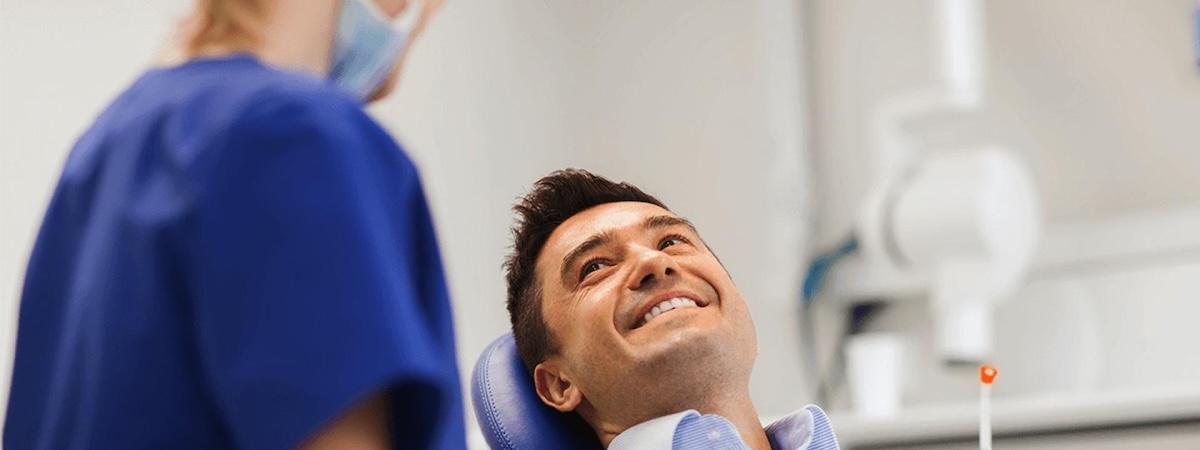
Has your smile been damaged by injury, advanced decay, or excessive wear? These days, advanced reconstructive dentistry techniques can be used to give you a completely new smile. No matter the cause of your smile problems, we can help you restore your smile to its original appearance, or even improve it!
This page describes some of the techniques used in full mouth reconstructive dentistry, but the only way to know which techniques are right for you to smile is to have a personal evaluation by Dr. Ravon. Please call (310) 275-5325 or contact Ravon Dental today for an appointment at our office in Beverly Hills.
Causes of Smile Damage
The type of full mouth reconstructive dentistry you receive depends on the type and extent of damage to your smile, which is related to the cause of your smile damage. Some of the most common reasons for smile damage include:
- Decay and lack of preventative dentistry
- Poor dental restorations
- Trauma
- Dysfunctional bite
Often, you may experience multiple causes of damage to your smile, which can be treated together.
Reconstructive Dentistry: Damage Due to Decay
Decay is the most common cause of damaged smiles. When bacteria living in your mouth attack your dental tissue, it can affect your teeth, gums, and more.
Dental caries, also called cavities, are when the acidic excretions of bacteria in your mouth cause sufficient damage that they create indentations, hollows, or spaces in your teeth that can shelter bacteria and trap food particles. Once sheltered there, bacteria increase in number, make more excretions, and increase the size of their harborage. Eventually, bacteria will break through the outside of the tooth into the tooth pulp or nerve and can spread from there to affect your jawbone and other teeth.
Periodontal infection is when bacteria shelter in your gums around your teeth. They can create spaces in your gums the same as your teeth, and will ultimately destroy the connections that secure your teeth, resulting in tooth loss.
Reconstructive dentistry for decay typically includes fillings, porcelain inlays and onlays, dental crowns, and even dental implants. It’s important to address hygiene issues and implement preventative measures to stop future damage.
Damage From Poor Dental Restorations
Yes, poor dentistry can result in significant damage to your smile. Poorly formed and placed dental restorations can cause wear to your opposing teeth. They can lead to excessive decay at the margins of the restoration, and may even conceal the extent of the decay.
Reconstructing damaged from poor restorations involves moving the old restorations, assessing the damage, and replacing restorations with new, better-fitting ones. You may also need additional restorations placed on opposing teeth that have been damaged, and in some cases, you might need a bone graft to make up for the loss of bone under a dental bridge before a dental implant is placed.
Damage From Trauma
If you were hit in the mouth while playing sports like hockey, basketball, or other contact sports, or had your teeth damaged in a car accident, reconstructive dentistry can give you your smile back.
Porcelain veneers can restore chips and scrapes to teeth, while dental crowns can be used if your teeth suffered major structural damage. Dental implants can be used if you lost one or more teeth due to trauma.
Reconstructing Your Smile to Restore Functional Balance
In cases where poor jaw function is causing excessive wear on your teeth and possibly TMD symptoms in your jaw and elsewhere, full mouth reconstructive dentistry can be used to give you a properly functioning bite.
After assessing the function of your bite, an orthotic, similar to a sports mouthguard that you wear at night, will be made to help hold your jaw in the proper position. For long-term results, it may be recommended that your smile be reconstructed so your teeth will perform this function. This may include braces or other orthodontic treatment, dental crowns to build up short teeth, or reshaping of some of your teeth.
Get Full-Mouth Reconstructive Dentistry in Beverly Hills
If you have a problematic or unhealthy smile, we can help. Please call (310) 275-5325 or contact Ravon Dental in Beverly Hills today for an evaluation of your smile.
